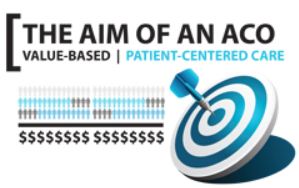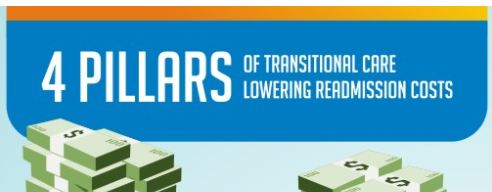A Picture Tells a Thousand Words
Using a picture and visual graphics to represent data and information is called an infographic. It is a great way to display statistical data that shows comparisons or charts that come from research and reports. These are more healthcare infographics I have come across lately. See previously discovered healthcare infographics.
Why are ACOs important?
 An accountable care organization (ACO) is a healthcare organization characterized by a payment and care delivery model that seeks to tie provider reimbursements to quality metrics and reductions in the total cost of care for an assigned population of patients. This is the first original infographic from Healthcare IT Connect examining the need for accountable care organizations. It reports on the facts surrounding the formation of accountable care organizations in the US, including developments with the 32 pioneer ACOs and the efforts to promote higher quality care at lower costs. While the US spends the most per capita in the world for healthcare, we do not necessarily enjoy the longest lifespans or highest quality overall health.
An accountable care organization (ACO) is a healthcare organization characterized by a payment and care delivery model that seeks to tie provider reimbursements to quality metrics and reductions in the total cost of care for an assigned population of patients. This is the first original infographic from Healthcare IT Connect examining the need for accountable care organizations. It reports on the facts surrounding the formation of accountable care organizations in the US, including developments with the 32 pioneer ACOs and the efforts to promote higher quality care at lower costs. While the US spends the most per capita in the world for healthcare, we do not necessarily enjoy the longest lifespans or highest quality overall health.
 4 Pillars of Transitional Care
4 Pillars of Transitional Care
Reducing preventable 30-day hospital readmissions has long been a high-priority for healthcare organizations and payers. Avoidable hospitalizations not only burden our healthcare system with unnecessary costs, they may also take an emotional and physical toll on patients and their families, decreasing their confidence in and satisfaction with the quality of their care. The CMS penalties for excess readmissions, which started kicking in last October, only intensified the focus on a solution. This infographic was published by Vree Health, creator of TransitionAdvantage a patient engagement and care coordination platform.
How patients engage online!
 Patients are no longer listening only to their physicians for health advice. The explosion of healthcare information on the Internet has led to a decline in the reliance of patients on their doctors only for information. According to the Pew Internet and American Life Project, 88% of American adults with internet access research health information online. 60% say internet info influenced a decision about how to manage a health condition. The fact is today’s mobile, social and search trends are indicative of the growing role digital connectivity plays in our lives. These three items have a profound impact on how health consumers find you online, research and evaluate treatment options, and take that critical step from being consumers to patients. This infographic is brought to you by Geonetric.
Patients are no longer listening only to their physicians for health advice. The explosion of healthcare information on the Internet has led to a decline in the reliance of patients on their doctors only for information. According to the Pew Internet and American Life Project, 88% of American adults with internet access research health information online. 60% say internet info influenced a decision about how to manage a health condition. The fact is today’s mobile, social and search trends are indicative of the growing role digital connectivity plays in our lives. These three items have a profound impact on how health consumers find you online, research and evaluate treatment options, and take that critical step from being consumers to patients. This infographic is brought to you by Geonetric.
